From
Ironman World Championships
to
Barely Being Able to Walk
Kristin Gustafson’s Story
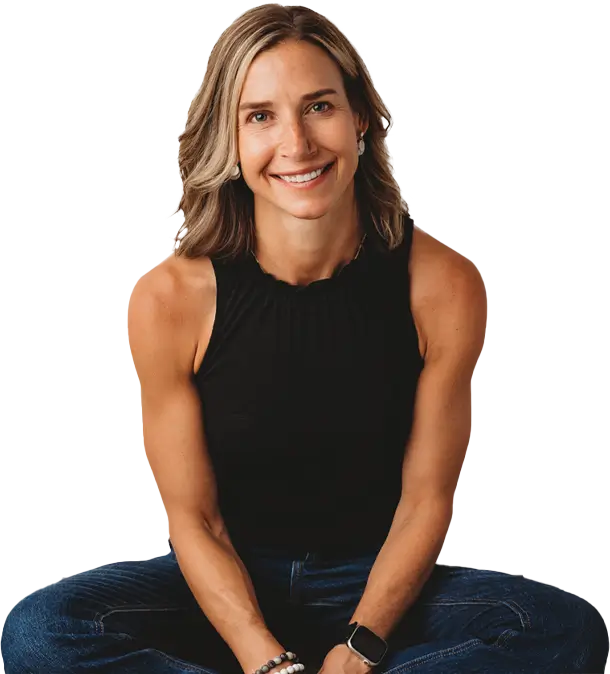
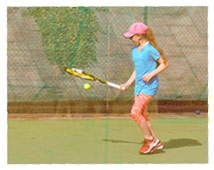
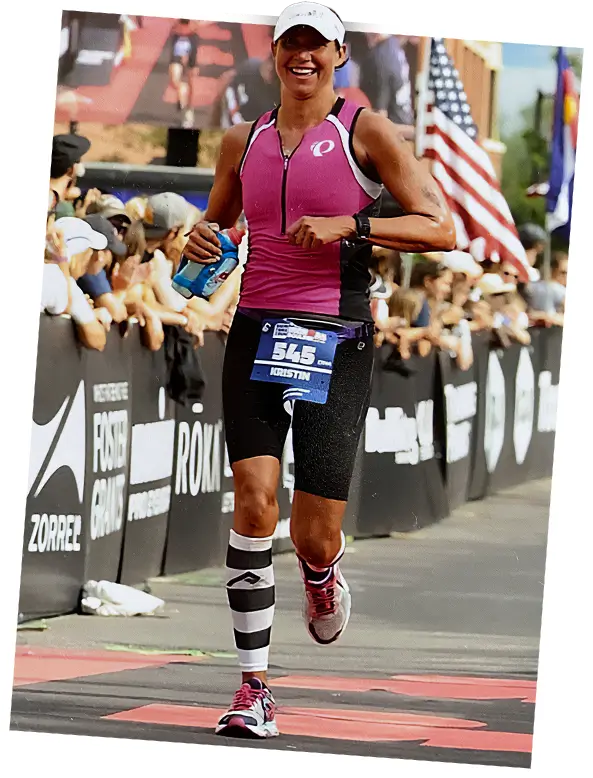
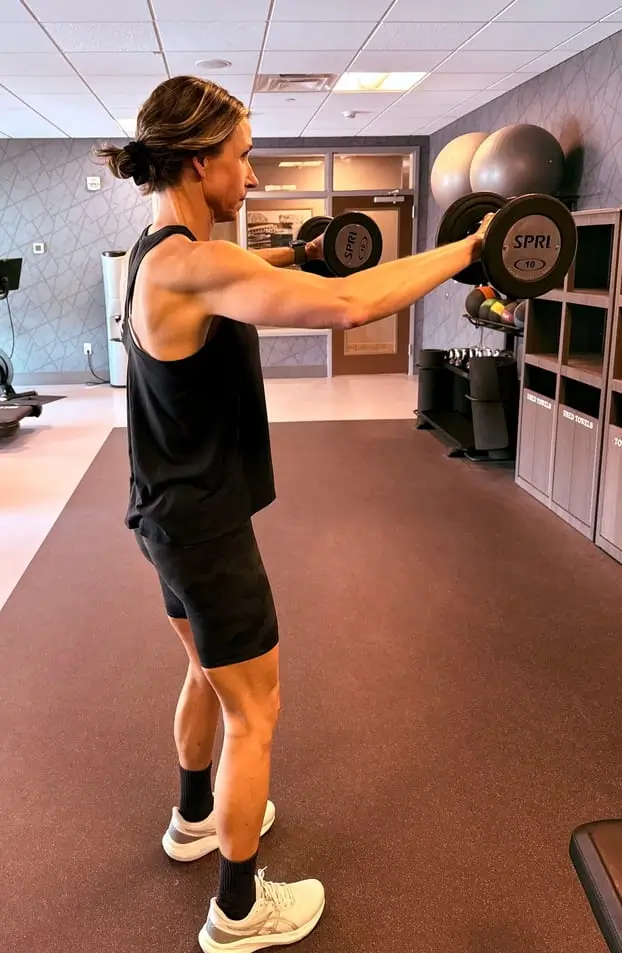
In her own words…
It’s before dawn when my alarm breaks the silence.
I slip into my running shoes and head out into the darkness, grateful for the ache in my muscles, the kind that reminds me I’m alive. The pavement greets me like an old friend. My breath forms clouds. My legs know the way.
Fitness has always defined me.
I picked up a tennis racket at age ten and never looked back. By college, I’d qualified for the state tournament five years in a row. But after three knee surgeries, I gave up the court and took to the road.
I started running marathons, then triathlons and eventually Ironmans. The holy grail of endurance. I’ve finished over thirty marathons. Completed several full Ironmans.
Racing wasn’t a hobby. It was home.
I remember my proudest Ironman… The bike ride was brutal, even my seat felt like it had a personal vendetta against me. My muscles were screaming, my stomach had fully turned on me, and every step of the marathon felt like a negotiation between pain and pride.
But I finished in ten hours and thirty-five minutes, beating my husband by a glorious seventeen minutes, a statistic I will absolutely never let him forget.
In that moment, full of pride and adrenaline, I felt complete.
I believed finishing meant I mattered.
I believed performance was who I was.
I believed miles gave my life meaning.
For years, that worked. Until one day, it didn’t.
It started with a stumble.
Not metaphorically. Literally.
One day I was gliding through training runs. The next, I was catching myself mid-fall, wondering what just happened.
My left leg felt strange. Not numb. Not painful. Just… off. Like my brain and my leg weren’t on the same team.
I pushed through it. That’s what athletes do. We override discomfort. We keep moving.
But the missteps kept happening. My stride lost its rhythm. My limbs, once disciplined, now felt wild and out of sync.
My fingers tingled on the bike. I couldn’t grip the handlebars. Shifting gears became impossible. So I moved my rides inside. Just me and a stationary bike in the basement. No crowds. No medals. No finish line.
Then I started falling more. No reason. No warning. Just—down. I laughed it off. “One of those days,” I said. But inside, something heavier was growing.
Doctor after doctor. Test after test. No answers.
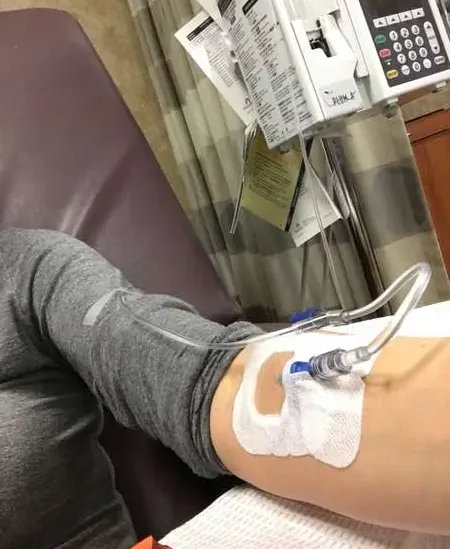
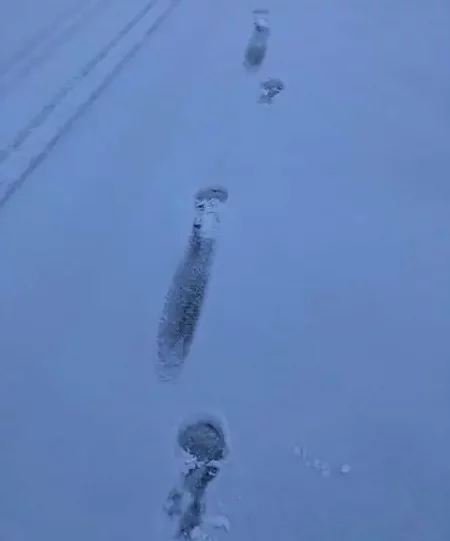
The first time I realized how much my leg was dragging
My body, the thing I trusted
most, was starting to turn against me.
What if this isn’t something I bounce back from?
The day everything changed...
December 9.
A date imprinted into my memory as my personal D-Day.
The day the neurologist said,
“You have Multiple Sclerosis. And Dystonia.”
I felt like the air got sucked out of the room. My heart was pounding. I wanted to stand up and walk out, to prove with my body that he was wrong. His words didn’t feel real. Like they were meant for someone else.
MS meant my body was attacking itself. Dystonia meant my muscles were moving without my control.
It didn’t feel like a diagnosis. It felt like a death sentence.
The athlete? Gone. The competitor? Gone.
The person I had built over years of sweat and grit – gone.
At home, I looked in the mirror and barely knew who I was. I laughed it off. I made jokes. I acted like I was okay. But I wasn’t.
I pulled away from people. I stopped showing up. Letting depression hollow me out, one quiet day at a time.
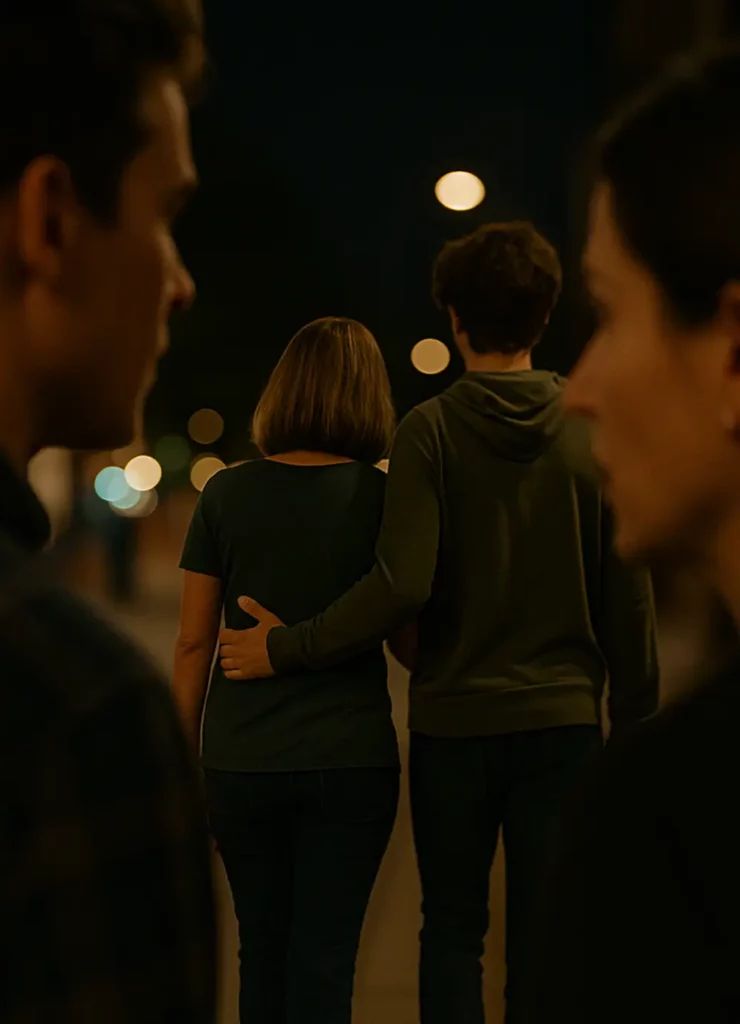
Then came dinner at Weggy’s with my son, Logan. I had one beer. Nothing strange.
But when I stood up, I wobbled. Logan reached for me. Steadied me like the rock he is.
As we made our way toward the door, I heard the whisper: “Oh my gosh. Look at that drunk mom. Her poor son has to walk her out.”
It hit me like a punch to the gut.
I wasn’t drunk. I was sick.
And for the first time, it hit me: This wasn’t just happening to me. It was happening to us.
That night, I broke. I didn’t just lose my identity. I lost the illusion that I could hide it.
From breakdown to breakthrough
The change didn’t come all at once. There was no dramatic turning point. Just the quiet realization that denial had become its own kind of prison.
I had held my life together with routines and discipline, believing if I just tried harder, maybe I could fix it.
But I wasn’t getting stronger.
I was just getting better at faking it.
After that, everything looked different.
I stopped asking Why me? And started asking What now?
I couldn’t change the diagnosis. But I could change what it meant. So I did something I hadn’t done in a long time:
I let go of the version of me that was built on finish lines and timelines.
And I started rebuilding something new. December 9 no longer marks my Death-Day.
It’s now my Diagnosis-to-Defiance Day.
The day I stopped letting my illness write the entire script and started becoming the author of what came next. I created my own compass. A way to navigate the detours when the map no longer made sense.
I call it my Personal GPS:
- Grit, when the road falls apart.
- Purpose, when identity disappears.
- Strength, not in speed but in showing up.
The athlete in me didn’t disappear. She grew.
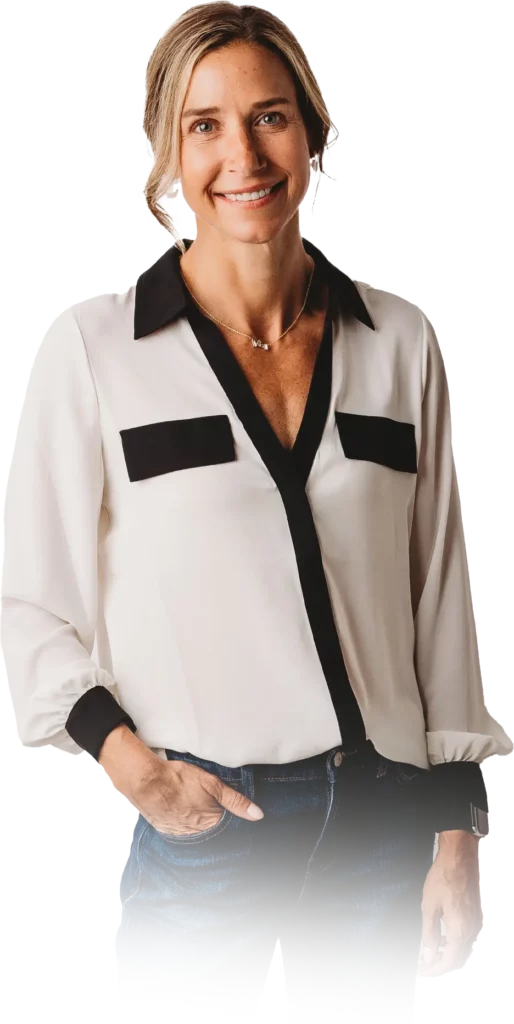
Why I followed this calling
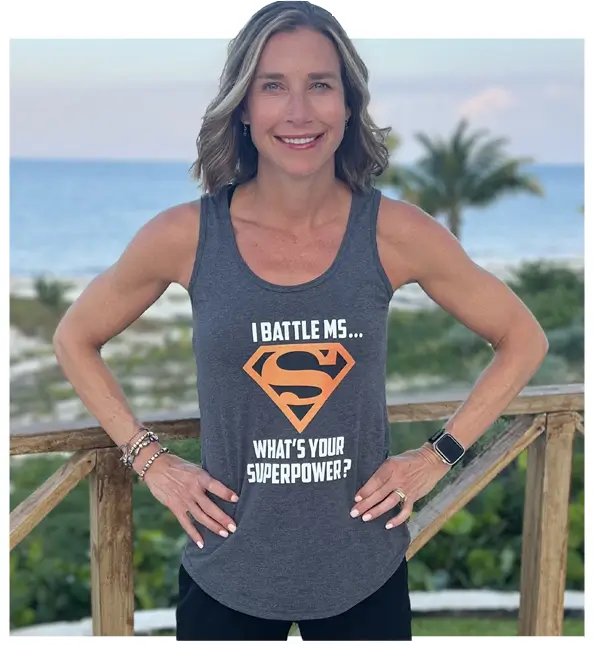
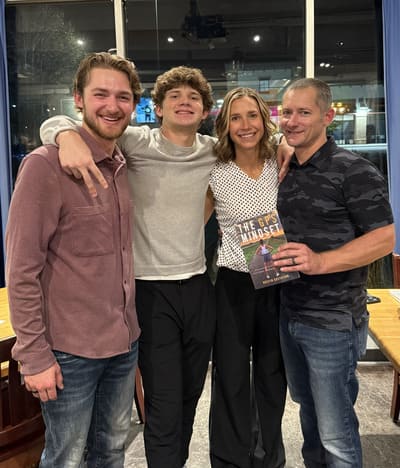
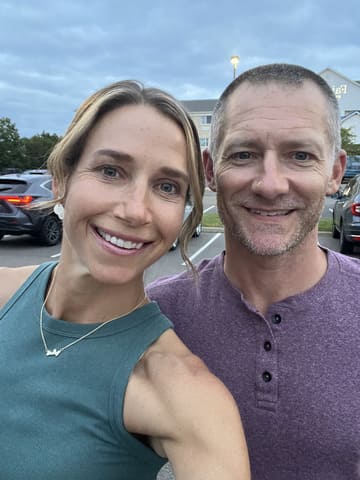
My diagnosis didn’t end my story. It gave me a new direction. And along that new path, I found something I didn’t expect: A calling.
Because this journey of losing your identity and rebuilding from the ground up, it’s not just for people with chronic illness.
It happens to anyone who’s suddenly forced off the path they thought they were on.
The executives who lose the job that once defined them. The high-achievers whose bodies won’t cooperate anymore. The parents, the caretakers, the quiet strugglers who wonder if they’ll ever recognize themselves again.
I see them. Because I was them.
I’ve lived in both worlds, the peak performer who conquered physical challenges and the person who had to redefine success when those challenges no longer possible. That’s why I speak to teams, leaders, and groups going through change. To remind them that a setback isn’t the end. It’s the start of a new chapter.
That’s why I coach people facing life’s detours. Not with quick quotes or fake smiles, but with real tools that work. Real frameworks to navigate what’s next.
That’s why I share my GPS Framework: Grit. Purpose. Strength.
Not as ideas, but as a hard-earned roadmap I had to live to understand. Because when I finally stopped trying to become who I used to be… I discovered who I was meant to become.
And now, I help others do the same. One step. One story. One chapter at a time.